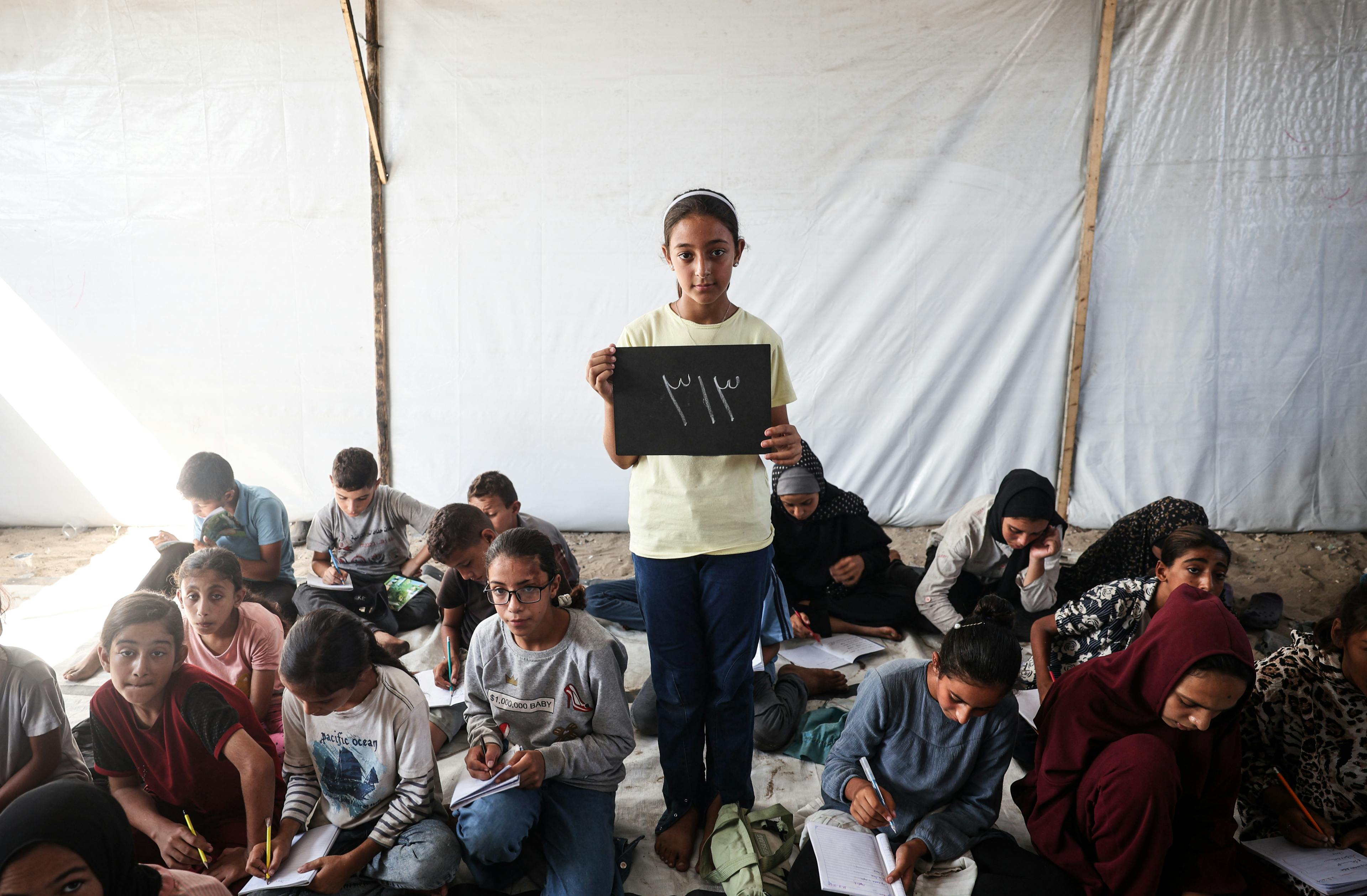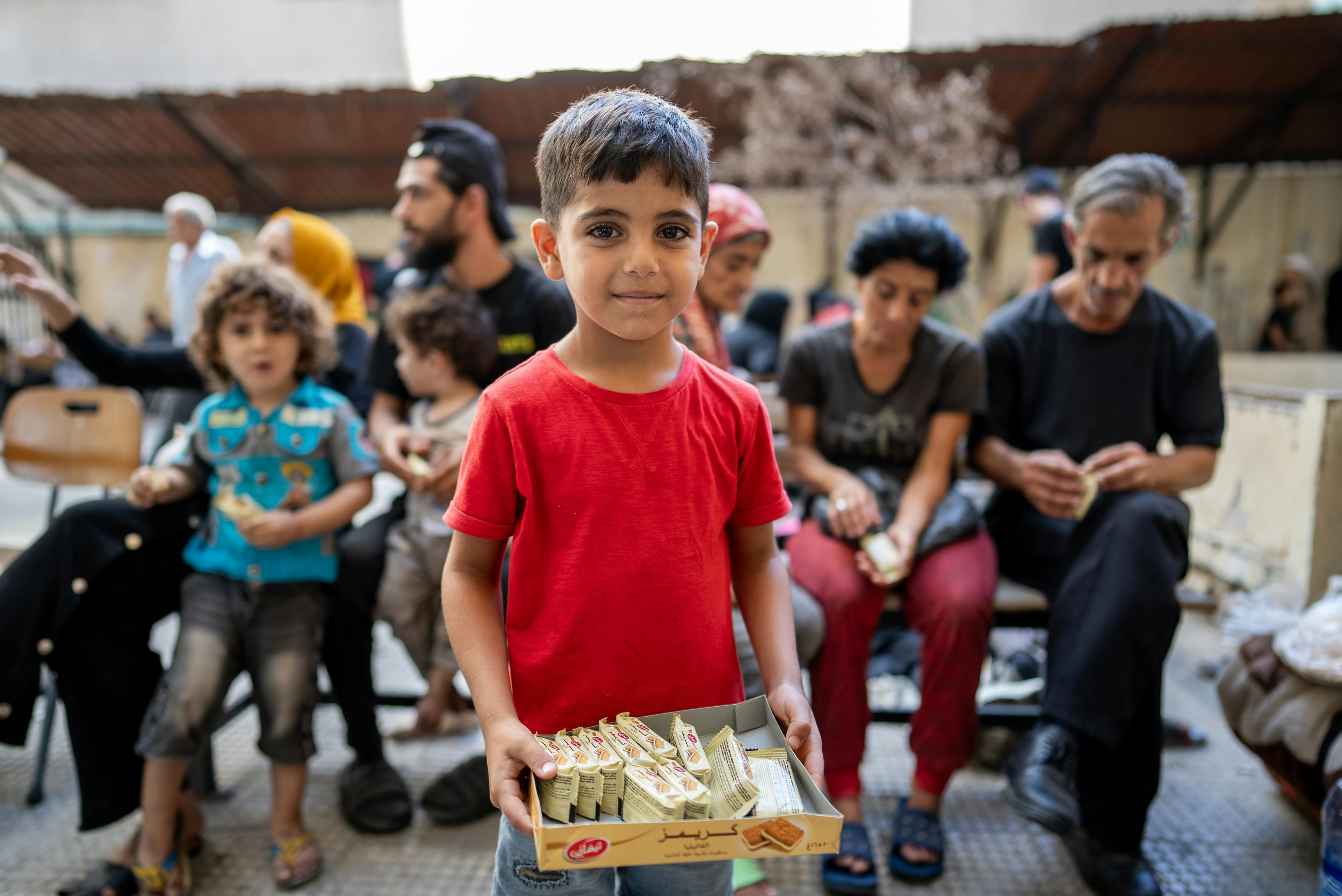
A year of horror in Gaza, while Lebanon conflict becomes deadliest in decades
Home
Media Releases
A year of horror in Gaza, while Lebanon conflict becomes deadliest in decades
2 October 2024
On Monday it will be a year since escalated hostilities in the region started. Children and families in the region will have endured a whole year of horror. It is unfathomable that not only is the situation continuing to deteriorate, but that the escalation of conflict into Lebanon is bringing even more death, disruption and displacement.
Hostilities on the Lebanon-Israel border escalated sharply in September 2024, leading to the deadliest period of the conflict there in decades. More than 1600 people have already been killed, including 104 children. A million people have been displaced in Lebanon by the conflict.
In response to the rapidly deteriorating situation, UNICEF in collaboration with the government of Lebanon, has provided essential supplies to shelters, including thousands of bottles of clean drinking water, hygiene kits, education and recreation supplies for children, blankets and sleeping bags, personal hygiene items for women and girls, and nutrition supplies including supplements and baby food. UNICEF is also providing psychosocial support, including child protection services, education, and recreational activities at many shelters.
In Gaza, despite the serious obstacles of bombardments, civil disorder and limited supplies, UNICEF is committed to delivering as much life-saving aid as possible and expanding our programmes when conditions allow. There are severe limitations on the current delivery of humanitarian aid, but UNICEF staff on the ground are working tirelessly to get as many supplies through as possible.
UNICEF is committed to being on the ground before, during and after emergencies. We will remain in both Gaza and Lebanon for the long term as the needs of families and children will be both significant and long-lasting.
We urgently call for an immediate ceasefire and for all parties in the region to uphold their obligations under international humanitarian law.
UNICEF Aotearoa is running appeals to help ensure lifesaving humanitarian aid reaches children who need it most. Please visit our Children of Gaza Crisis Appeal and our Greatest Need Appeal for more information or to donate.
INTERVIEW OPPORTUNITY IN LEBANON: UNICEF Global Spokesperson Tess Ingram is currently on the ground in Beirut and available for media interviews. Please contact [email protected] to arrange.
Key points and current statistics
Gaza:
- Nowhere in Gaza is safe. The devastating attacks on schools and internally displaced sites continue, killing families, including many children, and leaving already overwhelmed hospitals buckling under the strain.
- As of September, only 11 per cent of the Gaza Strip had not been placed under evacuation orders, leaving hundreds of thousands of families displaced into tiny areas which lack essential infrastructure and services.
- As of September 23rd, more than 41,000 Palestinians in Gaza – including women, children, older persons and entire families – have reportedly been killed, and more than 95,500 have been injured, according to the Ministry of Health in Gaza
- Water, sanitation and hygiene systems in Gaza have been rendered almost non-existent, driving an increase in disease, dehydration and malnutrition. The combination of these three things can be deadly for children.
- An immediate and lasting ceasefire is the only way to provide lifesaving humanitarian assistance, get hostages home, and protect and save lives across the region.

Lebanon:
- Hostilities on the Lebanon-Israel border escalated sharply in September 2024, leading to the deadliest period of the conflict with more than 1,600 deaths, including 104 children, 194 women and two UN staff, and over 8,408 injured.
- The escalation has led to mass displacement. On 29 September 2024, Lebanon’s Prime Minister announced that collective shelters were being set up to accommodate one million Internally Displaced People (IDPs).
- More than 346,000 IDPs, including 121,000 children, were counted by 30 September 2024, according to the International Organisation for Migration. More than 100,000 Lebanese and Syrians have fled Lebanon for Syria according to the UN Refugee Agency.
- The catastrophic escalation in hostilities comes against a backdrop of a multi-layered governance, economic and financial crisis.
- Lebanon continues to host 1.5 million Syrian refugees, 23,000 Palestinian refugees from Syria, and 180,000 Palestinian refugees.
- UNICEF is appealing globally for US$105.3 million to deliver a large-scale emergency response that prioritises WASH (Water, Sanitation and Hygiene), Child Protection and Cash, alongside Education and Health.
